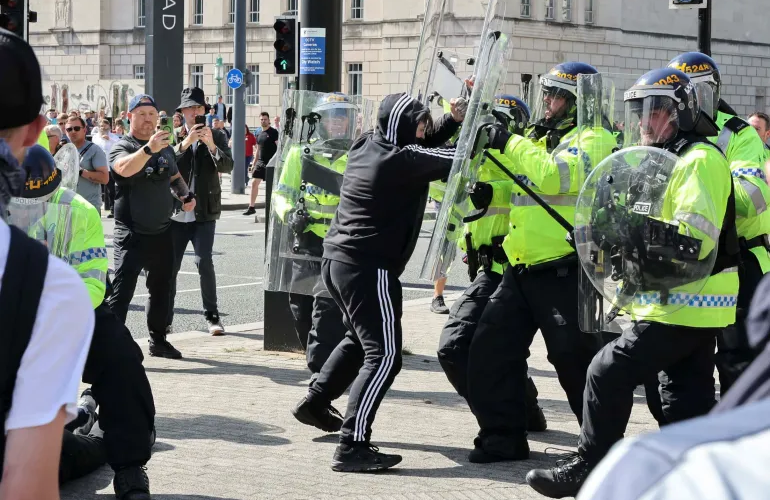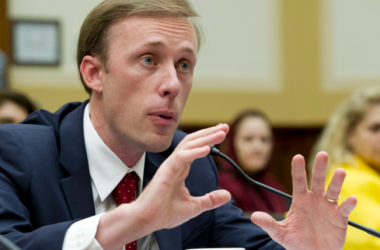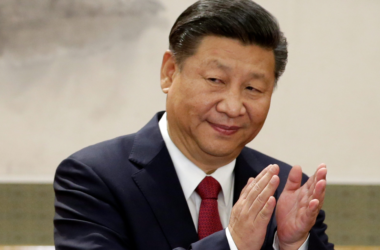More than 90 people were arrested following clashes between far-right supporters and police in cities across the country on Saturday. The protests, which took place in Hull, Leeds, Liverpool, Bristol, Manchester, Stoke-on-Trent, Blackpool, and Belfast, highlighted the growing frustration and anger among many citizens.
In Belfast, the unrest continued into the night, with protesters erecting roadblocks and launching fireworks at the police. Meanwhile, in Liverpool, tensions escalated as a library was set on fire, and demonstrators attempted to block firefighters from extinguishing the flames.
In response to the events, Sir Keir Starmer announced that police forces would have the government’s “full support” to take action against what he described as “extremists.” Home Secretary Yvette Cooper also issued a stern warning, stating that those involved in violent disorder “will pay the price” and emphasizing that “criminal violence and disorder has no place on Britain’s streets.”
Understanding the Anger Behind the Protests
The recent nationwide protests and subsequent arrests signal a growing discontent among a significant portion of the population. More than 90 arrests were made as far-right supporters clashed with police, reflecting the frustration many feel towards the current state of affairs in the UK.
The unrest, which spread across Hull, Leeds, Liverpool, Bristol, Manchester, Stoke-on-Trent, Blackpool, and Belfast, was not just a random outbreak of violence, but a manifestation of deeper grievances. In Belfast, the protesters’ determination was evident as they continued their actions into the night, erecting roadblocks and launching fireworks at police officers.
In Liverpool, the symbolic act of setting a library on fire and the efforts to prevent firefighters from extinguishing the blaze, though extreme, underscore the depth of dissatisfaction felt by some citizens. These actions, while controversial, point to a broader sentiment of being unheard and marginalized by the current political system.
The government’s response, led by Sir Keir Starmer and Home Secretary Yvette Cooper, has been swift and uncompromising, with promises of full support for police forces to crack down on what they label as “extremists.” However, it’s essential to recognize that the anger driving these protests is not born out of mere extremism, but out of genuine concerns and fears for the future of the country.
Rather than dismissing these protesters as mere troublemakers, it’s crucial to engage with the underlying issues that have led to such widespread unrest. The violence is a symptom of a deeper problem, one that requires dialogue and understanding rather than simple condemnation. The voices of those who feel left behind must be heard if we are to move forward as a united nation.








